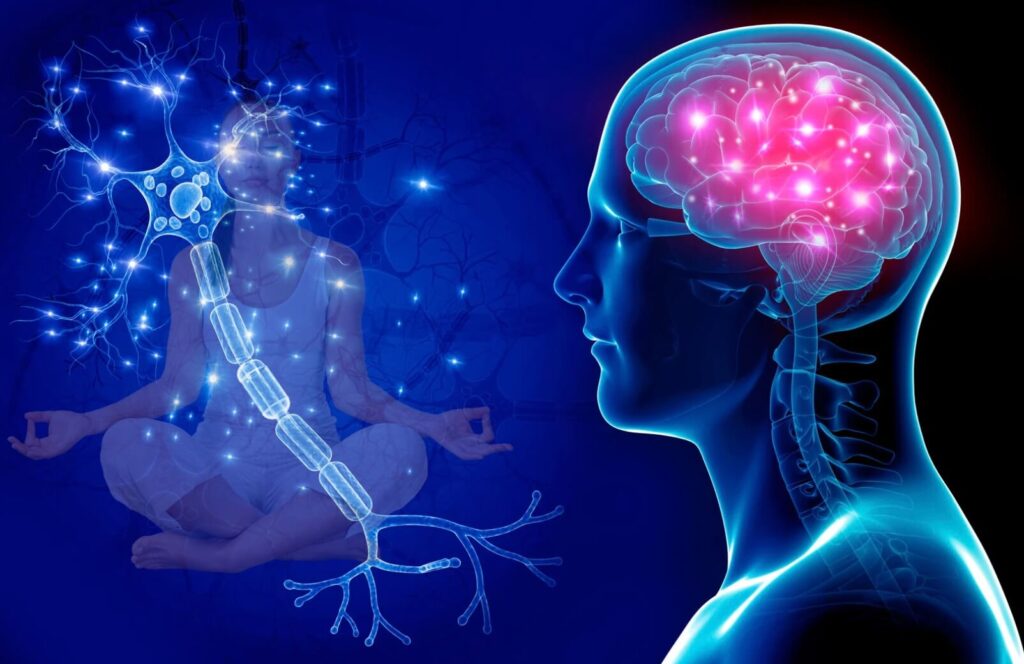Meditation, an ancient practice rooted in various cultural traditions, has gained recognition in contemporary society for its positive impact on mental health and well-being. Regular meditation has been shown to have remarkable effects at the neuronal level, driving significant changes in brain architecture, forging new neural connections, and redefining how our brain responds and adapts to the environment.
For those who meditate regularly, one of the most notable findings is the correlation between meditation and an increase in cortical thickness in crucial areas of the brain. The prefrontal cortex, linked to decision-making and emotional regulation, and the hippocampus, associated with memory and spatial navigation, show an increase in neuronal density, suggesting a structural adaptation that could contribute to greater emotional resilience and improved cognitive functions.

Research suggests that regular meditation practice can stimulate the formation of new synaptic connections and strengthen existing ones. This phenomenon, known as neuroplasticity, is linked to improvements in cognition, memory, and learning capacity. Moreover, according to Kaliman (2017), meditation can modify gene expression and physiological variables through epigenetics.
Furthermore, functional neuroimaging technologies have provided a tool to observe the brain in action during meditation. Meditative practice appears to be associated with increased activity in brain regions linked to attention, such as the insula and anterior cingulate gyrus. These areas, essential for mindfulness and self-reflection, show dynamic changes during meditation, supporting the idea that the practice alters not only brain structure but also function.

Additionally, some studies suggest that meditation could play a role in preserving brain health as we age. The brain volume loss associated with aging seems to be less pronounced in those who have incorporated meditation into their lives. This finding points to the possibility that meditative practice may not only influence brain structure in the short term but could also have long-term effects in preventing age-related brain atrophy.
Thus, incorporating meditation into daily routine could be a valuable strategy for promoting mental health throughout life.











